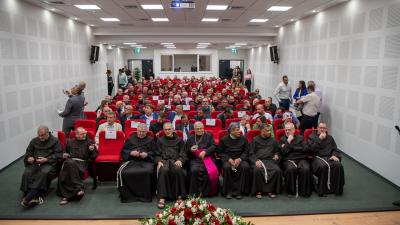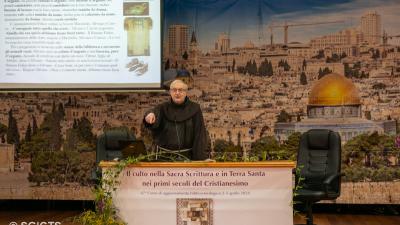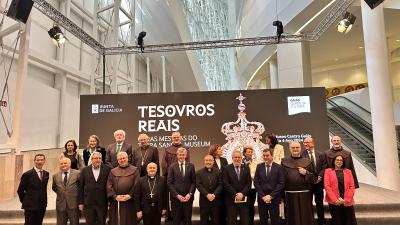
The pipe organ is the king of musical instruments, and it is the largest, as well as the one that has the task of solemnly accompanying liturgies in churches. For this reason, the Custody of the Holy Land, which has always been active in the field of musical education, has made it a point to teach this instrument, especially at the Magnificat Institute in Jerusalem. In Lebanon, the Custody of the Holy Land supports the organ course organized by the music school at Notre Dame University, which on June 28, welcomed its first students—the first in Lebanon’s history—to take a level examination, four years after the school was established. Since there is no organ teacher in Lebanon, the teacher came from Italy, thanks to the collaboration with the Italian Cultural Institute of Beirut and the support of the Franciscan Monastery of the Holy Land in the United States. The music teacher is Prof. Cosimo Prontera, the organ teacher at the Conservatory of Potenza.
“Our goal,” explained Br. Ricciani Ceriani, the Delegate of the Custos of the Holy Land for Music, “is to train organists and organ teachers, in order to activate the teaching of this instrument where it is lacking, and thus create access to organists to serve our churches and our choirs. The first fruits of this project will be seen Syria. Thanks to an agreement with the Custody, two teachers from the Higher Institute of Music in Damascus have perfected their skills by attending our course in Lebanon and now organ classes can begin in Syria. Moreover, all of civil society benefits from this, by increasing awareness and the musical repertoire linked to the organ. This could be seen with the success of the Terra Sancta Organ Festival in Lebanon, Syria and in all of the other countries where the Custody is present and where the festival takes place.”
In Lebanon, the creator of this project is Fr. Khalil Rahme, a Maronite monk and director of the Music School at Notre Dame University.
“This project would not have been possible without the collaboration of the Italian Cultural Institute of Beirut (IICB), not just for their economic support, but also for sharing our mission: it was the IICB, at our invitation, that identified and requested to have Prof. Prontera come, and this collaboration has continued with all of the directors who have succeeded him. My dream is that in the near future, the main parishes and churches will have resident organists, and support staff, as they do in Germany, in the United States and other places.”
“There is another aspect that should not be underestimated,” resumed Br. Riccardo. “Pipe organs are very expensive. Unfortunately, they are also delicate, and if they are not played and taken care of they are easily go out of order and lose their value, and the only option, then, is to restore them, which is also expensive to do. Therefore, together with the liturgical and musical aspects of this project, we must be aware that organ playing benefits the movable assets of our churches.”
[frc]




